Michigan will play in one final football game in 2025, as the Wolverines will take on the Texas Longhorns in the Citrus Bowl on New Year’s Eve (3 p.m., ABC).
NIL
House passes game changing revenue sharing bill for NCAA
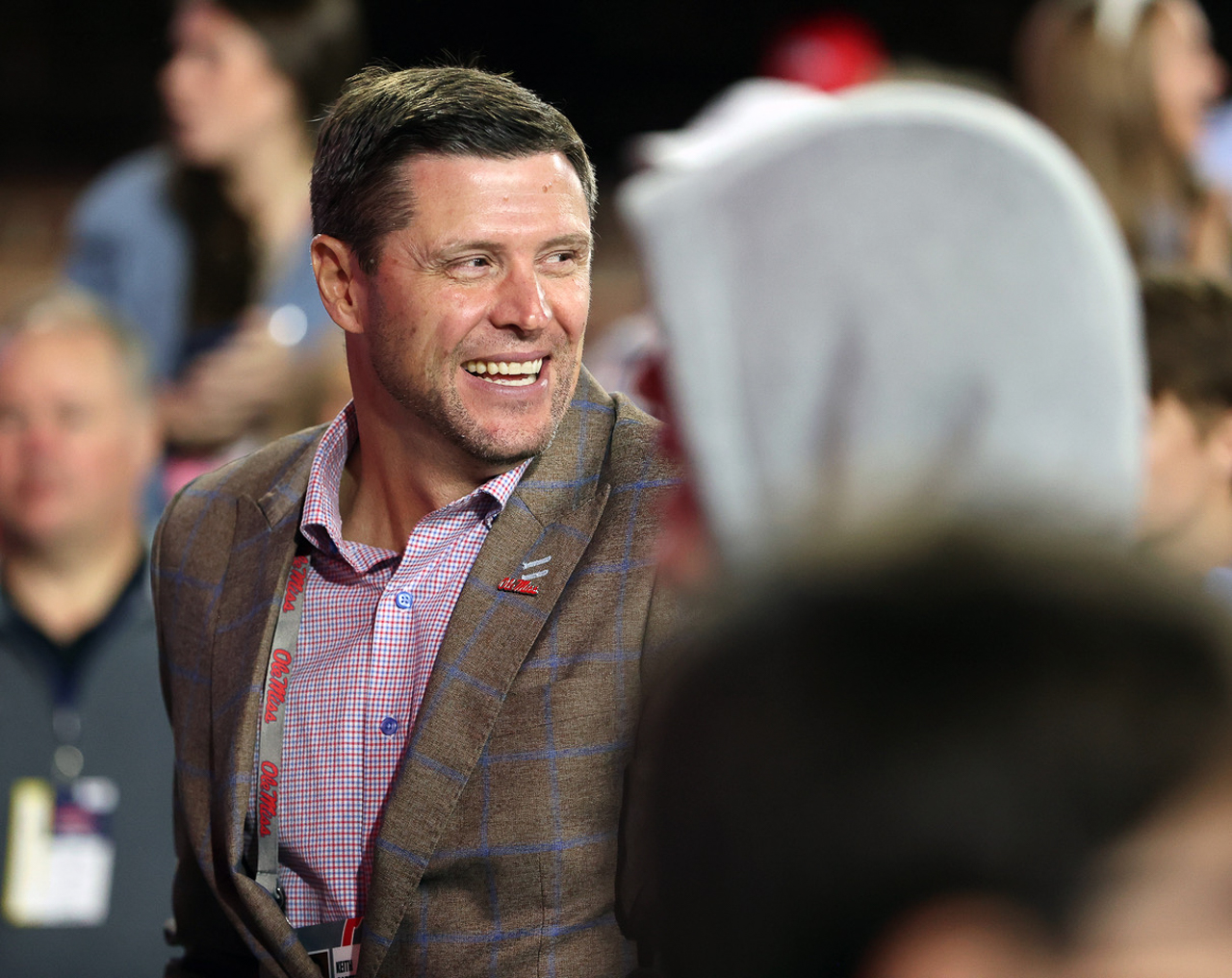
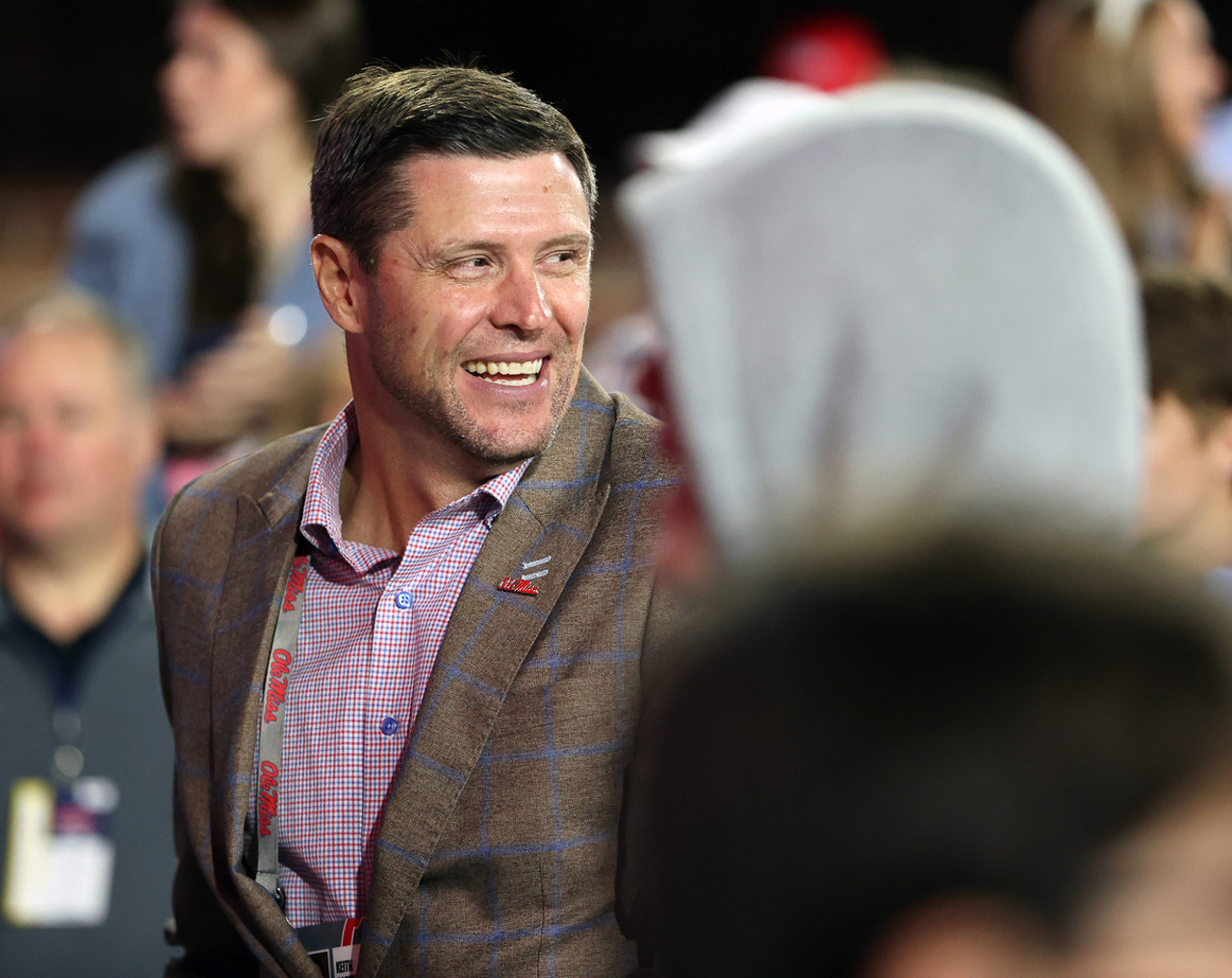
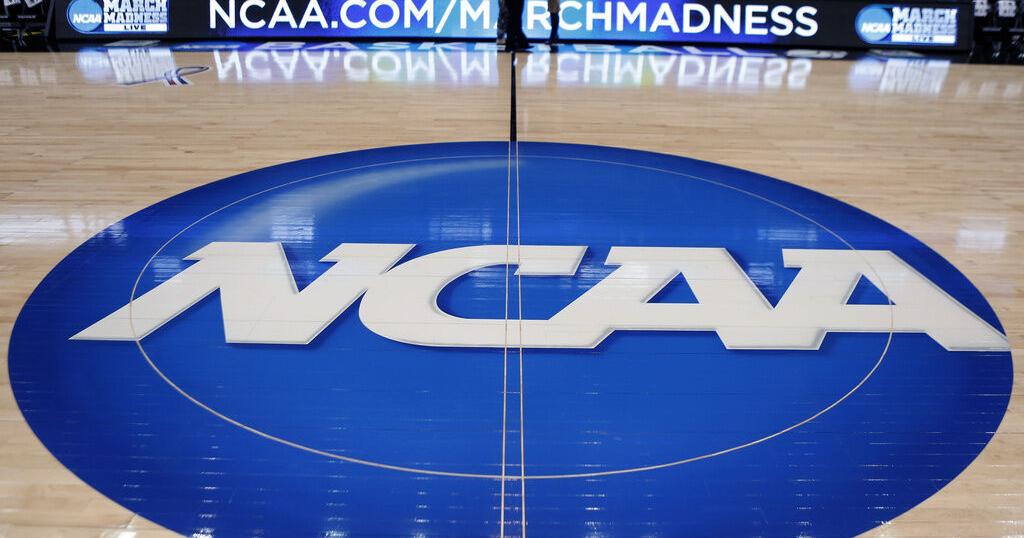
Friday marked the beginning of a new era in college athletics and NIL with the swipe of a judge’s pen in the House vs NCAA antitrust settlement.
U.S. District Judge Claudia Wilken gave final approval of the landmark settlement after five years of litigation. This $2.8 billion, 10-year settlement will pay past players for missed name, image and likeness opportunities and allow colleges to pay current players directly starting July 1.
NCAA president Charlie Baker made a statement following the settlement.
“Approving the agreement reached by the NCAA, the defendant conferences and student-athletes in the settlement opens a pathway to begin stabilizing college sports,” Baker said. “This new framework that enables schools to provide direct financial benefits to student-athletes and establishes clear and specific rules to regulate third-party NIL agreements marks a huge step forward for college sports.”
A constant complaint of college sports fans since the introduction of NIL was that the game was becoming “pay-to-play” and we as fans were losing what made college athletics great. This settlement along with the new guild lines to me is a step in the right direction of bringing back what makes college athletics so special.
A few details on what that $2.8 billion is going to be used for. Schools can share as much as $20.5 million of their revenues with players during the upcoming academic year. The settlement also includes $2.8 billion in back payments for athletes who competed between 2016 and 2024. The new revenue-sharing cap will increase by at least 4% each year during the 10-year agreement.
Alabama AD Greg Byrne also put out a statement following the settlement.
“One of the biggest transformational changes in college athletics is upon us, and Alabama athletics is has been planning for this day and making decisions that best position our department for long term success. Approval of the House settlement offers stability going forward, which is something that is much needed.” Byrne said. “We’re extremely proud of the world-class resources our student-athletes receive and will now add to that by offering new scholarships while fully funding revenue sharing.”
Byrne estimates that UA will fund an extra 40 scholarships. That is a huge jump for Alabama but it is less than other SEC power houses such as Texas and Georgia. My assumption is that while UA may give out a few less scholarships that extra money will be allocated to the players and they will still receive that money. So less scholarships but more money for the players.
NIL
Kirby Smart gives fiery response to question about conversations with players on future
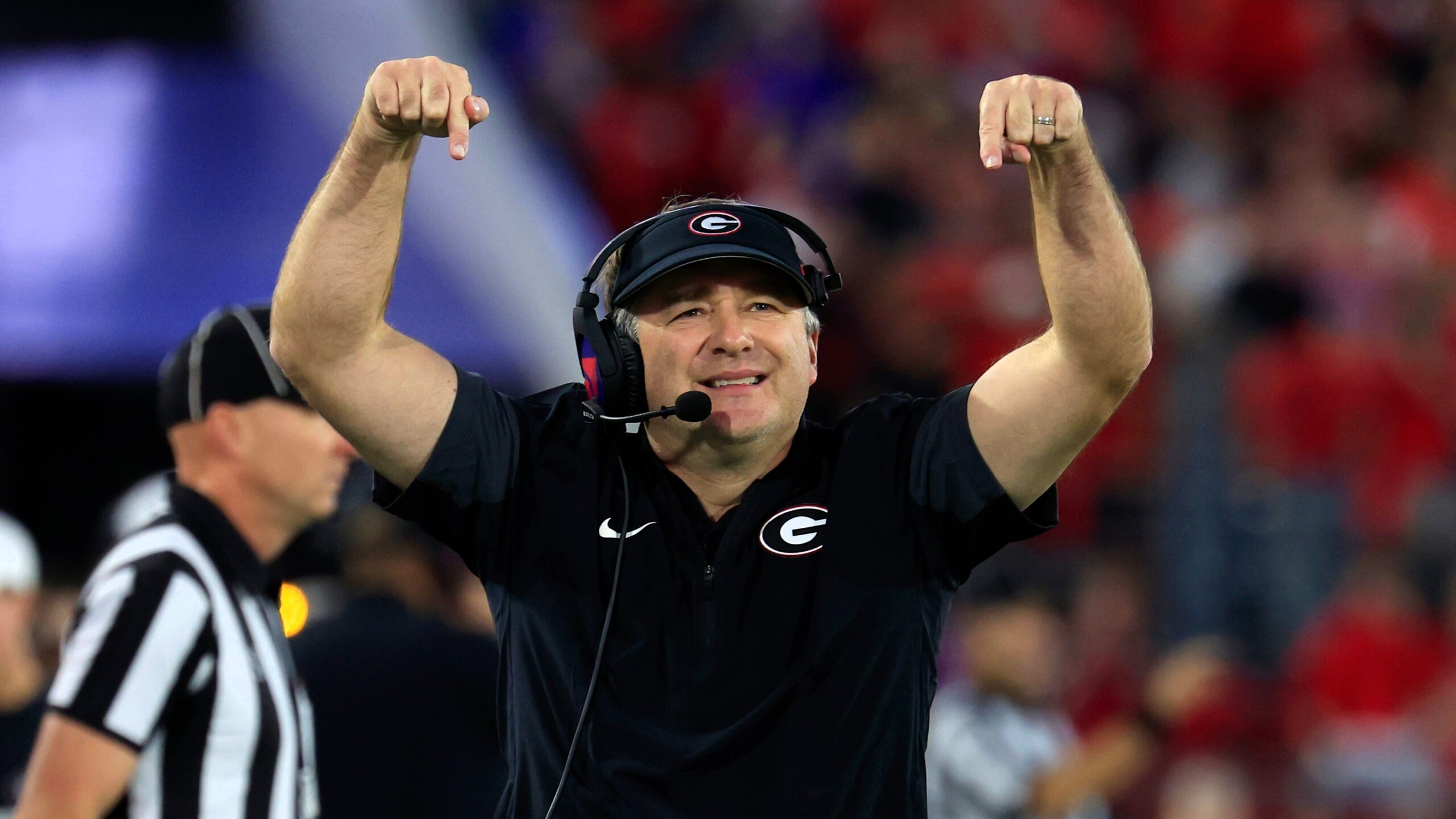
Throughout the month of December, college football players everywhere are making life-altering decisions about their future. Many are even releasing well-crafted announcements over social media regarding whether they intend to remain with their current program to seek greener pastures elsewhere.
Some upper classmen are even declaring their intention to enter next April’s NFL Draft or announcing postseason all-star game invites. And let’s not forget about National Signing Day on the first Wednesday of the month.
SUBSCRIBE to the On3 NIL and Sports Business Newsletter
At the same time, college football coaches are having often difficult and frank conversations with their current roster, while at the same time formulating a plan of attack ahead of Jan. 2nd, when the NCAA Transfer Portal opens for two full weeks.
It’s happening all over, … well, except in Athens apparently, where No. 3 Georgia (12-1) is busy preparing for a return to New Orleans for the College Football Playoff‘s Sugar Bowl national quarterfinal against No. 6 Ole Miss (12-1). Kickoff is set for 8 pm ET, New Year’s Day inside the Caesars Superdome. When asked about how he’s splitting his time between bowl prep and roster management at a recent press conference, UGA head coach Kirby Smart flipped the script regarding what he’s telling Bulldogs players that might approach him with concerns about their future.
“We’re focused on this team. I think it’d be remiss to say we’re focused on roster management. We’re not focused on it. We’re focused on prep and getting better,” Smart said Monday. “And for a while it’s been intrinsically looking at ourselves and asking each player: ‘Did you come here to develop? Did you truly come here to develop?’ Because if you did, all your buddies are out there right now, everybody’s announcing what they’re doing, announcing that I’m going into the portal, announcing that I’m re-signing. How about you announce that you’re getting better and you’re going to practice and actually do what (for the prior) 20 and 30 years college football players did before you, which was practice in December – when they’re on good teams – and get better.
“Because if you’re going to play somewhere else, you know what you need to do? You need to get better. If you’re going to play here, you know what you need to do? You need to get better,” Smart continued. “If you want to go to the National Football League and play, this is your last chance to get better. Because they’re not going to give you much opportunity, they’re going to cut you or keep you based on how you do, and they don’t get to practice in pads so many days. So development occurs in December for us, and that’s what we’ve been focused on.”
NIL
Shane Beamer blasts report surrounding cost of deals signed by LaNorris Sellers, Dylan Stewart

South Carolina fans received an early Christmas present this week when superstar quarterback LaNorris Sellers and star pass rusher Dylan Stewart both inked new rev-share/NIL deals with the Gamecocks to return for the 2026 season. Sellers announced his plan to return on Monday on X/Twitter, while Stewart confirmed his return Tuesday on Instagram.
And while South Carolina’s Shane Beamer undoubtedly welcomed both back with open arms, the fifth-year Gamecocks head football coach shot down a Tuesday night report from Columbia’s SportsTalk Media Network suggesting the price tag for the two Gamecocks stars was “in the neighborhood of $5 million from the school’s rev share total.”
SUBSCRIBE to the On3 NIL and Sports Business Newsletter
“Sounds to me like you need some much better sources,” Beamer reponded on X/Twitter on Christmas Eve. “This isn’t even remotely close to being true. #AnythingForClicks #Merry Christmas”
Sellers has been one of the top dual-threat quarterbacks in college football the past two seasons, combining on 5,915 total yards and 43 touchdowns as South Carolina’s starter in 2024-25. That included more than 2,700 yards and 18 touchdowns in a difficult 2025 season that saw Beamer part ways with offensive coordinator Mike Shula in early November. Beamer has since hired former Arkansas, FSU and TCU offensive coordinator Kendal Briles as the Gamecocks’ new OC ahead of Sellers’ third season as QB1.
“He’ll be the first to tell you he needs to play better, and we’ve got to coach him better,” Beamer said earlier this month, according to On3’s Gamecock Central. “We’ve got to be better around him, and we all have to be accountable. He understands that. … (And) all indications I’ve had from LaNorris are that he wants to be here. … He knows that the job is not finished, and there’s a lot of excitement about ’26, and he and a lot of our other players that are returning feel that same way.”
Meanwhile, the 6-foot-5 and 250-pound Stewart has totaled six forced fumbles, 11 sacks, 22.5 tackles for loss and 56 total tackles in 24 career games across his first two seasons in Columbia. Stewart is a former Five-Star Plus+ signee in the 2024 recruiting class as the nation’s No. 3 EDGE rusher and No. 17 overall player, according to the Rivals Industry Ranking.
“They’re extremely excited about what this team could be in 2026, and they’re a big part of that. There’s no question,” Beamer said on National Signing Day earlier this month. “I know there’s no sense of, ‘I’m not really sure South Carolina’s where I want to be.’ It’s them making the best decisions for them and their families and their futures.”
NIL
Alabama football: Parker Brailsford spreads cheer, DeBoer talks Indiana
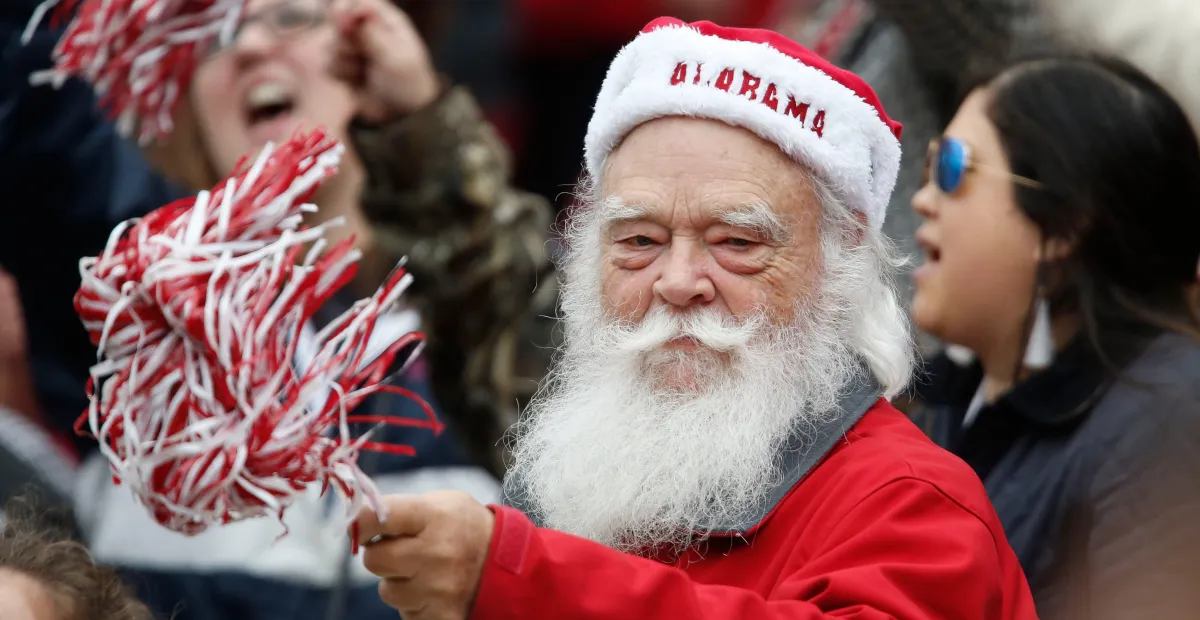
DeBoer spent one year as Tom Allen’s offensive coordinator, helping Indiana reach its first Florida-based January bowl game (at a time when that still carried greater meaning) in 2019.
And Cignetti spent four years as part of Nick Saban’s first Alabama staff, coaching wide receivers and coordinating recruiting for the program Cignetti eventually helped win a national championship.
But they’ve both distinguished themselves in their profession through their willingness to climb the coaching pyramid: From outside Division I, through lower levels as either a head coach or coordinator, all the way up to the sport’s biggest stage.
“Knowing coach Cignetti and — you referred to it — his path, nothing but respect for how he’s done it, how he’s gotten to this spot,” DeBoer said.
NIL
Surprising List Of Colorado Buffaloes’ Biggest NIL Valuations
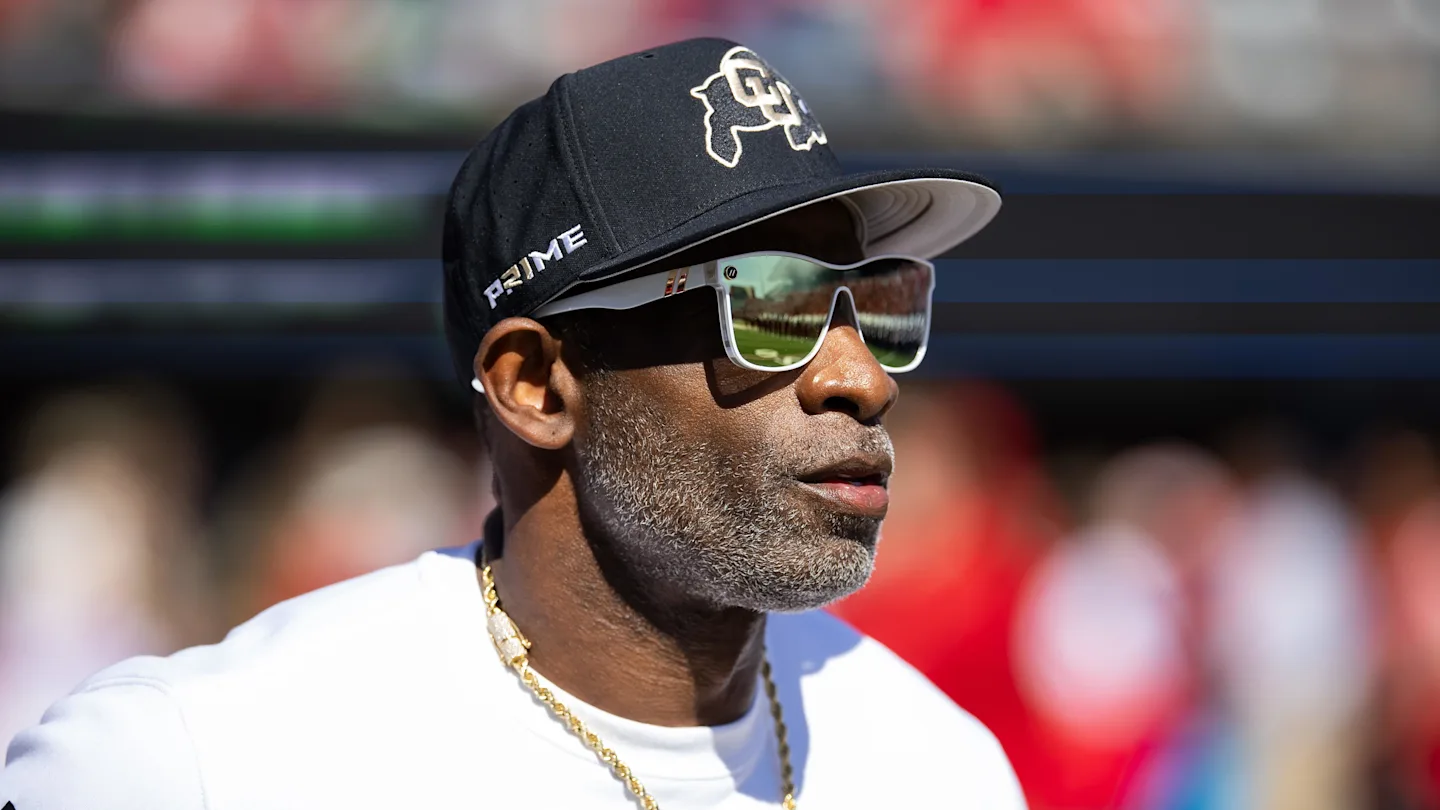
The Colorado Buffaloes are facing a mass exodus through the NCAA Transfer Portal. One reason that players enter the portal in the current college football landscape is due to Name, Image, and Likeness (NIL) deals.
The current Colorado Buffaloes players with the highest NIL Valuation according to On3 are notable when evaluating who will be on the team next season.

Colorado Players With Highest NIL Valuation
- Jordan Seaton: $1.7M
- Julian Lewis: $1.1M
- Omarion Miller: $570K
- Jehiem Oatis: $390K
- Tawfiq Byard: $358K
- Dre’lon Miller: $321K
- Noah King: $315K
- Christian Hudson: $312K
- Carde Smith: $311K
- Zarian McGill: $119K
NIL valuations are not how much players are earning, but On3’s way of measuring a player’s projected annual value. It combines roster value and NIL value.

One of the most significant aspects of the top 10 Colorado players is that only two are set to return to the team in 2026: offensive tackle Jordan Seaton and quarterback Julian Lewis. Offensive lineman Zarian McGill is also in the top 10, but is headed to the NFL in 2026.
The remainder of the top 10 in NIL valuation have announced their intention to enter the portal. With the number of players set to leave the team, the Buffaloes will lose several highly valued players.
MORE: Deion Sanders Reportedly Hires Familiar Name As Colorado Running Backs Coach
MORE: Why Shedeur Sanders Will Bounce Back From Late-Season Struggles
MORE: Insider Reveals Biggest Reason Behind Colorado’s Transfer Portal Mass Exodus
SIGN UP FOR OUR NEWSLETTER HERE
Jordan Seaton Highest NIL Valuation On Colorado
Seaton has the highest NIL valuation and is one of the most critical players on the Buffaloes. Seaton has been with the program for two years, both of which have been dominant. He missed three games due to a foot injury, but allowed just two sacks and five quarterback hurries over 328 pass protection snaps.
Seaton will be entering his third year with the program, which will likely be his last, as he could declare for the NFL draft after the 2026 season.

After a 3-9 season, it was possible Seaton would enter the portal, but he is expected to return to the Buffaloes in 2026. Seaton will play a prominent role in Colorado’s offense next season, with Lewis set to be the team’s week 1 starter. As Colorado looks to take a step forward, having an elite player on the offensive line who is also a veteran on the team will be crucial.
Julian Lewis Ready To Lead The Buffaloes
Lewis is preparing for a big year with the Buffaloes after developing throughout the 2025 season. He was a big pickup in the 2025 recruiting class, initially committed to the USC Trojans before flipping to Colorado.
Lewis started in three games this season, his first being against the West Virginia Mountaineers on Nov. 8. Colorado coach Deion Sanders decided to redshirt Lewis, which meant the quarterback did not play in the final game of the season.

“I’ve made a decision that JuJu is going to redshirt,” Sanders told the media when announcing the decision. “That’s my decision. I want what’s best for the kid, what’s best for his family, what’s best for this wonderful university that has given me the tremendous opportunity and given him the opportunity. I think for the program, it’s best for everyone, but mainly it’s great for him.”
Lewis passed for 589 yards, four touchdowns, and no interceptions. The Buffaloes hired offensive coordinator Brennan Marion, who helped turn programs around by fixing the offense. With Marion and Seaton’s return, Lewis is set up for success in 2026 and beyond.
Though four games are a small sample size, the young quarterback has a high ceiling. He made some big throws, and with Marion, Lewis has the chance to take off in 2026.
RECOMMENDED ARTICLES
NIL
Biff Poggi should no longer be considered for Michigan’s HC job
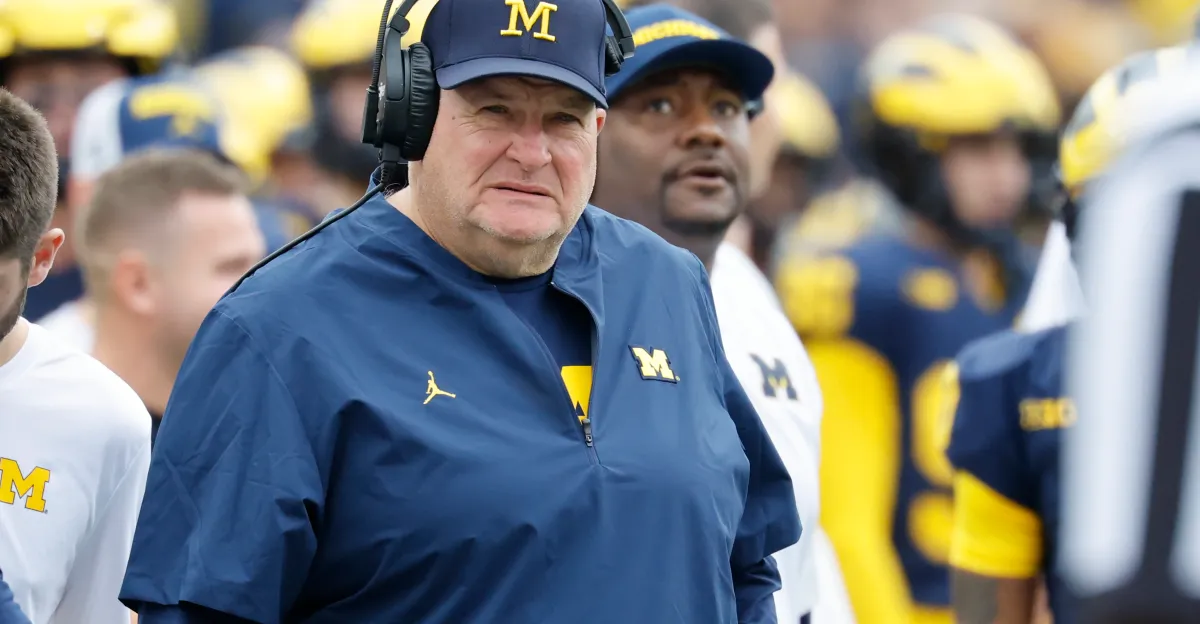
The team will be without at least three players, as Derrick Moore, Jaishawn Barham and Giovanni El-Hadi are all skipping the game to prepare for the NFL Draft. Speaking to the media on Monday, interim head coach Biff Poggi didn’t think anyone else on the team would opt out of the game. However, his tune changed quite a bit just two days later, as he speculated on a Texas-based podcast called “The Stampede” that he may be down even more guys than that.
Players on the team were sent home to be with family for Christmas earlier this week, but Poggi doesn’t know how many of those players will come back on Friday when the team is slated to leave for Orlando.
“I think there’s a really good chance that we’re going to have many more opt outs for the game, unfortunately, because we’re in such a stat of flux,” Poggi said. “And when they get to the business side of it, they think, ‘Well, we don’t have a coach,’ or, ‘We’ve had this situation with our former coach, there’s investigations and all these things, I don’t know who’s going to coach me. Why do I want to play in that game?’ So I can see some of that happening, too. And I would tell you on (December) 26th, we’re probably going to have a significantly different roster than we had yesterday when we sent them home.”
Poggi also mentioned how he thinks “most of the guys opting out need to play … they need the film, and they need to play well,” and that “team the way you and I knew it is gone now. And now it is strictly a financial and a business decision, and the head coach and the position coaches really are not players in that discussion.”
In other words, the decisions the players are making are based on what their families and agent are telling them, and they are not consulting with their coaches one bit. And in other words — players are doing what’s in their best interest.
As a former hedge fund manager, Poggi should understand risk management and trying to generate the best returns possible. That’s why Poggi said he doesn’t want to “be the guy that talks them into (playing a bowl game), and then something happens.” So while he understands why the players are doing what they are doing, he isn’t exactly onboard with how the decisions are being made.
There’s a lot to digest in this podcast, and I think the main takeaway for me is that Poggi is not made to be a head coach in college football. And that’s fine — he’s been very successful and has made a lot of money doing other things. And if he wants to continue making an impact in the lives of young adults, he can still do that, but he should by no means be doing that in the position of head coach at the University of Michigan.
And if you need one more quote as far as why Poggi should not be considered any longer for this position — and this is a real quote, by the way — here you go:
“I would ask one thing, and I’m being very serious — you need to pray for us,” Poggi said. “Because we are going through things that no young kid should have to go through … just when you hit your knees tonight, you don’t have to pray that we win, I know that ain’t gonna happen, just pray that the good lord will give me the right wisdom to do this the way it needs to be done.”
Update: Some people are interpreting this as Biff saying he knows the Texas podcasters wouldn’t pray for Michigan since they’re playing in the bowl game, while others are interpreting it as Biff saying they won’t win the game. If he meant the former, I do sincerely apologize, but the way I initially interpreted it while listening to the podcast, it sounded like he was saying the latter, especially given other comments he’s made about how he was hoping to not play against Texas because they’re a good team.
With it being the holiday season, Coach Poggi, I will give you what you are requesting and I will pray for you and the players to get through this. You’re right — no young person should have to endure the things that they have endured over the last couple weeks. I can’t imagine being in college and having all that happen at once.
However, to go on an opponent’s podcast and air Michigan’s dirty laundry publicly is not something an interim head coach should be doing. Whether you realize it or not, you have given the players that are on the fence a reason to not come back for the bowl game (and beyond that).
If this podcast appearance didn’t eliminate Biff from consideration, I don’t know what will. But under no circumstances should he be legitimately be considered for this job any longer.
Merry Christmas, and thank God for Dusty May, Kim Barnes Arico and Brandon Naurato.
NIL
The College Football Playoff Is Mostly About Who Spent the Most
The winter holidays mark a time of joy and celebration for some, but are more defined by anxiety for others. Amid college football’s annual holiday-season tradition of bowls games, the sport’s shift from the long-held postseason customs to an expanded playoff heightens anxiety.
Regardless if one falls in the category of joyful reveler or cantankerous Scrooge, consumerism plays a critical role in the season. College football is no different, with the recent advent of NIL becoming a foundational element of the game evident in the remaining Playoff field.
As the bracket whittled down from 12 to eight with last weekend’s opening-round games, the College Football Playoff demonstrated an exercise comparable to Eddie Murphy’s monologue about Christmastime spending in the seasonal classic Trading Places: “I ain’t gonna have money to buy my son the G.I. Joe with the kung-fu grip, and my wife ain’t going to make love to me ‘cause I got no money.”
Well, reaching the Playoff and advancing are similar. The eight quarterfinalists stand as testament to spending power — though it’s difficult to pinpoint exactly how much, which contributes to rising anxieties.
A CBS Sports article ahead of the 1st Round broke down the tournament into NIL-spending tiers, with five of the 12 labeled “elite spenders.” Four of those play on in the round of eight: reigning national champion Ohio State, Oregon, Texas Tech and Miami, which outlasted fellow elite spender Texas A&M in what was perhaps uncoincidentally the most competitive of the four opening-round games.
James Madison and Tulane were both routed against deep-pocketed opponents in Oregon and Ole Miss, which isn’t necessarily a data point worth applying to any NIL discussion. Athletic departments with more funds through television revenue, merchandising, etc. have long had advantages against their counterparts from conferences with fewer resources, and that disparity is a defining trait of the underdog stories fans love.
In the case of this year’s Playoff other historical underdogs, however, NIL spending is an undeniably crucial factor in Indiana and Texas Tech pursuing the national championship.
The top-seeded, undefeated Hoosiers head into their first Rose Bowl Game in almost six decades behind the Heisman Trophy winner Fernando Mendoza. The Indiana quarterback has an NIL valuation of $2.6 million per On3.com estimates, up from the $1.6 million estimate shortly after Mendoza’s transfer from Cal.
And while less dramatic in a historical context than Indiana’s rise to prominence, Texas Tech competing for the national championship is a significant jump for a program previously destined to also-ran status. The Red Raiders are underdogs in the sense that they were rarely competitive on a national level previously, but Texas Tech reportedly spends on NIL with a fervor comparable to top-tier soccer clubs.
The soccer parallel works in part because, like a once-middling Manchester City became an English Premier League powerhouse coinciding with an infusion of cash, Texas Tech owes much of its rise to oil money.
On3 reported Texas Tech spent a whopping $28 million on its 2025 roster, making it one of the highest-priced lineups in college football. The public face of Tech’s NIL collective, former Red Raiders lineman Cody Campbell, sold his energy company Double Eagle for a reported $4.1 billion earlier this year.
So does this year’s Playoff foreshadow all our football holiday seasons to come? Does a program need its own version of Landman to strike it rich in order to compete?
Looking at the other closely contested 1st-Round matchup — Alabama’s comeback win at Oklahoma — offers fascinating perspective. It pit against one another two historically outstanding programs that CBS Sports designated as “good, but not as elite as you think” spenders.
That’s an interesting description, as it aligns particularly with Alabama’s drop-off from the most dominant program in the sport in the years just before the Supreme Court allowed NIL payments in 2021, to the Crimson Tide’s current positioning as a consistent winner but hardly a world-beater.
Now, it’s overly simplistic to credit Alabama’s marginal slide to NIL spending and discredits just how remarkable Nick Saban was as the Tide’s head coach. But it is noteworthy that Saban has been an outspoken critic not of NIL, but its lack of structure.
“I’m all for the players making money,” [but] I don’t think we have a sustainable system right now,” Saban said last spring. I think a lot of people would agree with that. In terms of the future of college athletics period, not just football, how do we sustain 20 other non-revenue sports that create lots of other opportunities for people in the future?”
In its parallel with the holiday season, Saban’s comments about the long-term health of college athletics during this present-day era of unregulated spending might bring to mind nightmares of credit-card bills coming due after a gift-buying spree.
You have perhaps noticed much of the information on NIL spending is presented in estimates. The lack of concrete oversight or regulation makes evaluating the landscape difficult, and only adds to the anxiety surrounding NIL.
-

 Motorsports2 weeks ago
Motorsports2 weeks agoSoundGear Named Entitlement Sponsor of Spears CARS Tour Southwest Opener
-

 Motorsports2 weeks ago
Motorsports2 weeks agoDonny Schatz finds new home for 2026, inks full-time deal with CJB Motorsports – InForum
-
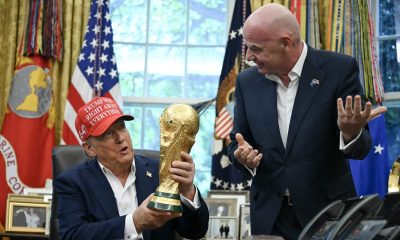
 Rec Sports3 weeks ago
Rec Sports3 weeks agoHow Donald Trump became FIFA’s ‘soccer president’ long before World Cup draw
-
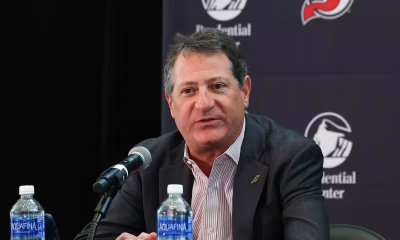
 Rec Sports2 weeks ago
Rec Sports2 weeks agoDavid Blitzer, Harris Blitzer Sports & Entertainment
-
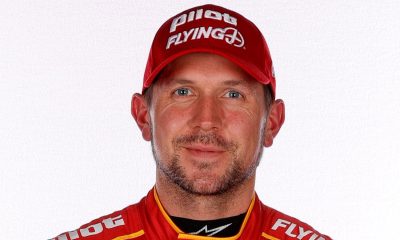
 Motorsports3 weeks ago
Motorsports3 weeks agoJR Motorsports Confirms Death Of NASCAR Veteran Michael Annett At Age 39
-
Sports3 weeks ago
Elliot and Thuotte Highlight Men’s Indoor Track and Field Season Opener
-
Sports3 weeks ago
West Fargo volleyball coach Kelsey Titus resigns after four seasons – InForum
-
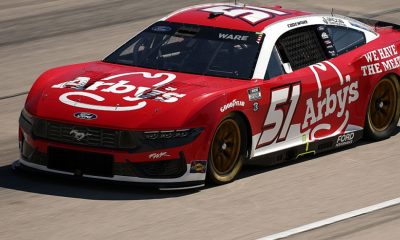
 Motorsports2 weeks ago
Motorsports2 weeks agoRick Ware Racing switching to Chevrolet for 2026
-

 NIL2 weeks ago
NIL2 weeks agoDeSantis Talks College Football, Calls for Reforms to NIL and Transfer Portal · The Floridian
-

 Sports2 weeks ago
Sports2 weeks ago#11 Volleyball Practices, Then Meets Media Prior to #2 Kentucky Match































